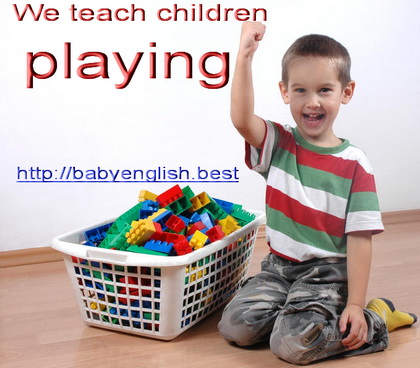What do children like to do? What children don’t like to do?
Children like to play. Children like to watch cartoons.Children don’t like to do things they are forced to do.

What do children like to do? The answer is simple.
Сhildren like to play and children like to watch cartoons.
Eagerness to play is given to a child by nature. From the earliest age, children play games to develop elementary skills and practices, to develop speech abilities. With growing older, the game is used for socialization (role playing games). In real live, children are limited in their actions, but in games they can be anyone or anything they want. Every child engages his or her imagination, thinking … We can say that phrases “children like to play” and “children like to learn” are equal.
Game is very important and loved by children – and this is our first “hook” to attract their attention.
Second “hook” is cartoons. All children at all times in all countries love and adore watching cartoons.
And that shall be used for learning English. We shall create a situation where a child will feel a need to learn English. Same need as in his or her mother tongue. Our task is to make process of learning English for a child to look natural. A child shall not realize that he or she is learning the second language. He/she shall enjoy it. He shall love it and be interested. Everything shall be the same to his or her mother tongue learning – listening, remembering, trying to repeat.
It is easy to keep a child on the first hook. Language of the games is not difficult. Even in games that were specially developed for children to learn English. They will definitely understand what is going on during a game.
All games that we use are designed for two purposes – learning new words and phrases and practicing self-control – listen, think, act. I want to be more specific about the second purpose. Children are very impatient. Most of the games for children have one common flaw – a child can move to the next action without listening to the end what they were told to, not finishing previous actions. We remove this flaw.
With the second hook (cartoons) there can be some difficulties.
Children are growing fast. Children are growing really very fast. Cartoon that is interesting to a child today will not be interesting to him or her in six months and in one year a child will not want to watch that cartoon at all. That is why level of understanding English shall correspond to the age of a child to whom English is a native language. A child might not be able to speak at the same level as native speaker but shall be able to understand English like a native speaker.
If we are solving this issue – YOUR CHILD WILL KNOW ENGLISH VERY WELL and will definitely start speaking. That is why a very important part of successful learning of English by children is
CONSISTENCY
A child must grow together with his cartoons..
Оne of our student started learning English from the age of 8 months. Her first word was in English - ‘Balloon’. She looked at the balloon and said ‘Balloon’. Up to the age of 3,5 years she watched cartoons in English with pleasure and understood almost everything. After that, there was a one year break in learning. And all cartoons she watched in her native language. After one year, it took a lot of efforts and extra-paid hours of a teacher to get back a child’s interest in (understanding of) the cartoons in English. If we want our child to watch a cartoon with interest, this cartoon shall be relevant to his or her age and a child has to understand what characters are talking about.
What children don’t like to do? The answer is also very simple.
Children don’t like to do the same things as the adults. They don’t like to do things they have been ordered to do. But an adult, unlike a child, can understand such concepts as “must”, “need to”, “useful”, “I will need that in the future”.
Don’t try to explain to a child that he or she will need knowledge of English at school or at work – it’s a waste of effort. .

That is why in all possible situations we transform every need to do something into a game.
For example, a child messed around all his toys and doesn’t want to clean them up. It can be quite challenging to force him or her to clean up. Try a game – who will collect toys faster, who will collect more toys. In a couple of days, this game can be changed into: while I am preparing a meal for you, you collect your toys and then we will eat and go for a walk. A child will collect his toys with pleasure.
Unfortunately, we have to be very strict in certain issues. For example, we demand with no exceptions full ban of access to mother’s or father’s iPod. The easiest way to do so at the start is not giving it to a child and not explaining how to use it. If your child takes iPod already to play games, try to limit access to it gradually by saying the following: I cannot give it to you now because I am expecting an important call / it has to be recharged / it is broken and will be repaired tomorrow. Slowly, your child will lose his habit to ask for iPod and play with it.




